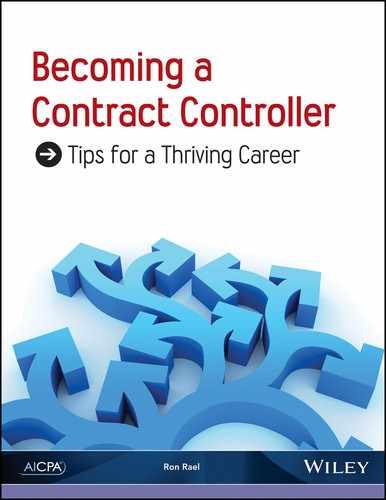Preface
The Trend
Contractor Nation
DRAMATIC AND PERMANENT MOVE TO CONTRACTING
“The demand for e-consultants is staggering. Technology consultants are commanding very large dollars.”
Business Finance Magazine
An estimated 30 million Americans are now working as part-time contractors, according to the Seattle Times (November 21, 2010). Each day, more of the work that gets done in business and other areas is being accomplished by employees who are contractors paid by the hour or project instead of regular full-time employees with a reliable paycheck.
Executives and professionals now make up around 10 percent of the temporary workforce.
HISTORY OF THE HIRED GUN ROLE
The bell curve in figure 1 demonstrates the demand for contract controllers and financial executives.
The position started to take shape in the early 1980s. By 1992, the demand for that role had grown tremendously in just 10 years. From 1990 to today the market has again expanded exponentially.
No one can say exactly how high the curve will go, but I suspect that there will always be a demand for the contract financial executive.
The good news for you is that if you are considering this as a career choice there is unlimited potential.
The good news for you if you are already serving as a hired gun is that there will always be a need for your services.
Figure 1: Demand for Contract Controllers

Objectives
You have the opportunity to provide top quality services at affordable prices without the human resource issues involved with having employees.
This fast-growing trend in business—requesting the services of a Financial Executive who is not a permanent part of the organization—means that for a variety of reasons, some companies are opting to
Employ a person who works less than full-time.
Staff a major project with temporary employees.
Contract with an employee from their CPA advisory firm.
Contract with a highly experienced Controller or CFO for an indefinite but short-term period of time.
This trend raises many questions, problems, and opportunities.
This book is designed to provide answers and guidance to many of the questions raised with this novel situation. Despite the unique need for Controllers, there is not much practical information on the subject.
After reading this book you should be able to
Apply the special skills required of the part-time and contract Controller.
Understand the role the contract Controller plays.
Weigh the positives and negatives of being a part-time and contract Controller.
Know how to be a very effective contract Controller.
Discuss issues related to the elusive contract executive position.
Develop a Position Description for a contract financial executive.
Generate ideas on how to market yourself as a part-time or contract Controller.
Design a tailored action plan for your specific needs.
List your own ideas and contributions.
Put this information to good use in your own career.
This book is designed for CFOs, Controllers, and anyone who chooses to work in a part-time or contract capacity. The specific duties are not as important as the attitudes and skill set. I will assume that you already know how to do accounting, so we will not cover number crunching. We will cover topics such as how you market yourself and how to deal with the ego-centric CEO.
Assess Your Contract Professional Skill Set
Contract Professional Skills Explained
The following are a list of skills, along with descriptions of those skills, that are necessary for the successful contract professional.
ACTIVE LISTENING
100 percent of your being is involved when you are actively listening!
Hearing is a physiological reaction, while listening is a mental process.
Hearing is automatic, while listening is a conscious choice.
Listening cannot be substituted by another skill.
Over 40 percent of communication is the process of listening.
OBJECTIVE OBSERVING
Sitting back without an emotional attachment to what is in front of you and seeing it as a child would.
Observing or watching to see the entire picture and the parts that are not readily evident.
OBJECTIVITY
Staying above the problem or issue.
Not taking sides.
CLARITY
Seeing the event or issue with fresh eyes.
Using your entire thinking abilities to see things clearly for insights and undiscovered truths.
BUILDING TRUST
Inspiring in others their confidence in your ability and character.
Making others feel assured that you will not cause harm.
TESTING ASSUMPTIONS
The ability to analyze your or other people’s assumptions surrounding an issue to identify and remove any biases.
Working to remove any paradigms that you use to filter out information that conflicts with your deeply-rooted beliefs.
PARTNERING
Thinking and behaving collaboratively.
Keeping the client’s best interests in everything you do.
PROBLEM SOLVING
Looking for solutions that not only stop the problem today but help to prevent it from occurring again tomorrow.
Using a wide variety of tools and insights to get to the core of the problem, while not getting bogged down with the side issues.
INTEGRATIVE THINKING
The use of facilitation tools to develop tailored and thoughtful recommendations for any unique situation.
Learning quickly as time passes, using a variety of methodology.
SELLING IDEAS
Being able to convince or persuade someone with your arguments and logic.
Selling ideas runs the gamut from simply stating the obvious to negotiating with another person.
PROFESSIONALISM
The expectation that a person will act as an expert at a reliable level of integrity.
Competence and integrity are essential to professionalism.
TAKING A FIRM STANCE
Living up to your role as the conscience of your firm. There will be times when you have to take a firm stand against something that nearly everyone else believes is a good choice.
The Controller needs to be able to clearly state their convictions and use that stance to persuade others.

